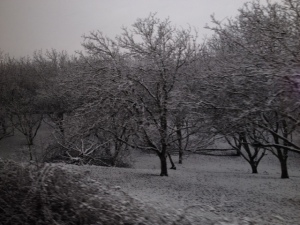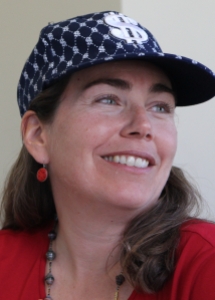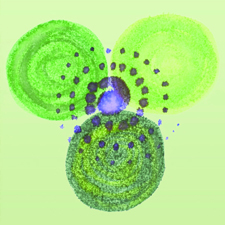My cell phone.
My Belgian roots.
My membership in a Christian church.
My wedding band.
The genocide and massive use of rape and sexual torture in the Democratic Republic of Congo, Rwanda and Burundi are connected to these four things. The violence in that land is not a far off horror that has nothing to do with me, nor is it an innate character flaw within the Africans themselves.
The foundation for these atrocities has its roots in “my people” and me.
“In 1885 Belgian King Leopold ‘founded’ the land he called the Congo Free State (later Rwanda and Burundi) as his own private colony. Booker T. Washington wrote an article, “Cruelty in the Congo Country,” where he reported, ‘There was never anything in American slavery that could be compared to the barbarous conditions existing today [1904] in the Congo Free State.’1 In 1908 King Leopold turned the colony over to Belgium. During the years of Leopold’s rule, the population of the Congo declined from an estimated twenty-five million to less than nine million.”2
Belgium assigned the responsibility for education of the Congolese to the missionaries, staunch supporters of colonialism who were interested in educating men who wanted to go into the priesthood. The first Congolese citizen admitted to a university without heading to the priesthood happened in 1954—the year I was born. “By the eve of Congolese independence in June 1960, the aspiring nation had only sixteen African university graduates out of a population of more than thirteen million. There were no Congolese engineers or physicians.
“Perhaps most crucially, the lack of centralized education left the new nation in a stunted state of growth. Across the African continent, educated Africans had often played a key role in the independence movements, and these leaders had then stepped in to govern the new nations which emerged in the 1960s.”3 Due to Belgian colonial education practices, however, this critical foundation was never built.
Limits to education weren’t the only blows dealt the Congolese by the Belgian missionaries. “The most important legacy of colonialism in Rwanda and Burundi involved the Belgians’ obsession with racial, ethnic classification. The Belgians believed that the Tutsi ethnic group in Rwanda was racially superior to the Hutu ethnic group because the Tutsis had more ‘European’ features.”4 They turned ethnic differences, which had long been present, into gasoline-soaked kindling for a bonfire of war.
Though this region is among the poorest in the world, it is resource rich. “It contains 2/3rds of the world’s remaining rainforests, and vast mineral wealth including cobalt, coltan (used in cell phones and other high tech equipment, Congo is home to 80% of the world’s coltan reserves) copper, cadmium, petroleum, diamonds, gold, silver, zinc, manganese, tin, germanium, uranium, radium, bauxite, iron ore, and coal.” 5 Greed for these natural resources was also a major influence in the Belgian, and later global, treatment of this country.
Millions have been killed. Hundreds and hundreds of thousands of people, mainly women, have been brutally raped and tortured. The land has also been raped through extraction of minerals such as coltran.
Don’t get me wrong. I am not taking personal responsibility for actions done generations ago by one of my homeland’s cultural ancestors. I am not refusing to own a cell phone or wear my wedding ring. However, I don’t want to pretend that I don’t see the connections between my life and these horrors.
For decades, my heart has ached for the women who have been brutally raped, their bodies and lives ripped apart. I am grateful that in 2011, many, including Eve Ensler, stepped in to open the “City of Joy” in Bukavu, Democratic Republic of Congo, to serve these women.
Only recently have my thoughts turned to the perpetrators of this violence. How does a human being’s behavior become so twisted that he is capable of torturing, raping, brutalizing and killing? What can be done for the men who have perpetrated this heinous violence? How can there be a turning of the tide within these countries with extreme violence still active in so many men?
What can be done about the foreign and transnational corporations, and the people who run them, who have allowed their lust for riches to lead to violence and economic devastation of people native to this resource-rich land?
I don’t know how to stop these horrors, but I won’t pretend that I don’t see the ways that my cell phone, ancestral homeland, faith tradition and wedding ring have connections to unimaginable horrors.
I woke up to the paradoxes in our world today and won’t go back to sleep. In very concrete ways, I am not disconnected from anyone or anyplace on earth. I pray that my life, and my small and large everyday choices, will support the Great Turning so needed in our world today.
1. “The Booker T. Washington Papers,” University of Illinois Press (1904): 8, 85, http://www.historycooperative.org/btw/Vol.8/html/85.html.
2. Thurston, Nancy, Big Topics at Midnight: A Texas Girl Wakes Up to Race, Gender, Power and Class (Portland: Rosegate Press, 2012), 325
3. http://www.ultimatehistoryproject.com/belgian-congo.html
4. http://geography.about.com/od/belgiummaps/a/Belgian-Colonialism.htm









